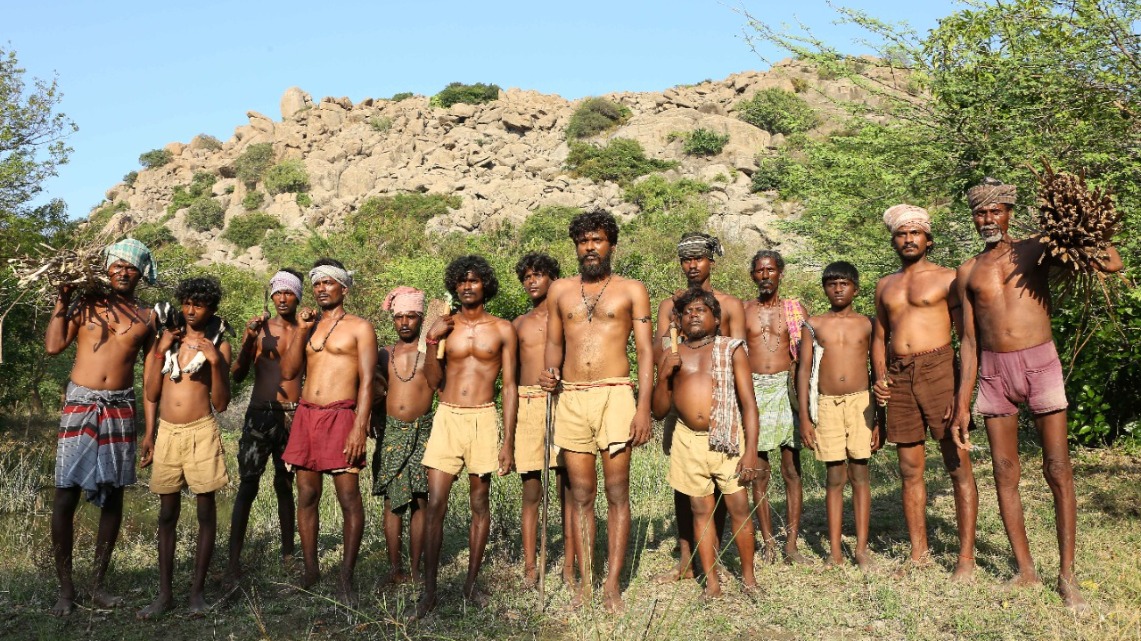Facts About Irular Tribe, The People Who Face Injustices In ‘Jai Bhim’?

The marginalization of Tamil Nadu's Irular tribe in society is a major theme in the film Jai Bhim. It has accurately depicted the ways in which institutions and other societies frequently take advantage of tribal tribes by abusing their authority. It has seeded the seeds of change and very honestly depicted actual occurrences.
Jai Bhim has had a profound effect on the viewers' thoughts in addition to bringing them to tears. The film effectively portrays the tribal people's worldview, which has always been enigmatic and difficult for outsiders to comprehend. The scenes, speech, music, stillness, and emotions all perfectly convey the injustice done to them.
The plains people think that only the tribes inhabit the highlands. That's why they don't know about the tribe members living close by, like the ones in the film.
The common resources found in the plains, including land, water, and the goddess Mullai Nilam, are worshipped by the Irulars. They identify as Villiers in various places. Although anthropologists assume that these people are unrelated to the Irulars who live in the forest, they are unaware of the similarities in their worldviews.

Irulars now have lived apart from other communities for generations on the fringes of the city. They inhabit low-density locations like beaches, tiny dunes, and areas with water sources.
The Irulars, who inhabit the majority of Tamil Nadu's districts, nevertheless adhere to customs from long ago that are exclusive to their group. These are lowly people that hunt, trap rats, trap snakes, make herbal medicine, and fish in bodies of water as common resources from the plains for their daily needs.
The people who don't create anything for the market and don't believe in ownership are known as the Irulars. However, in the context of globalization, particularly in the last generation (the previous 25 years), the lands and natural resources that these tribal people had relied on have been taken over by powerful individuals, severely impairing the Irular community's ability to support itself.
The state and others have labeled the traditional cultural ideas of the Irulars as regressive, stupid, and "uninterested" in progress. Subsequently, the Irular population residing in Tamil Nadu was forced into bondage, where they were forced to work for the remainder of their life on credit at several work sites.
Numerous incidents of violence, brutality, and sexual harassment have been committed against them in industries, brick kilns, rice mills, stone quarries, and sugarcane mills, among other locations. They would be beyond the scope of a thousand films like Jai Bhim. The reason behind the ongoing denial of schooling and other privileges for Irulars residing on the plains is their inability to secure community certification.




